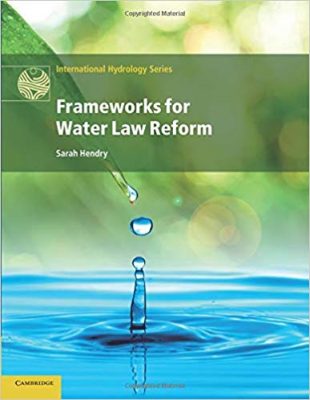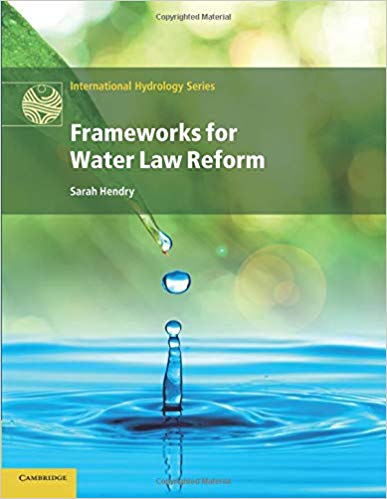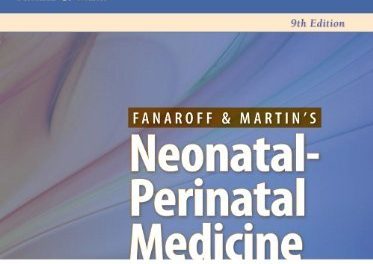 This book is part of the International Hydrology Series, a collaborative publishing program linking the International Hydrology Program (IHP), UNESCO and Cambridge University Press. The IHP addresses theoretical issues in the conduct of hydrology research, as well as practical, applied and water management issues raised by hydrological projects. Authoritative and international in scope, the series constitutes a major collection of research monographs, synthesis volumes and graduate research.
This book is part of the International Hydrology Series, a collaborative publishing program linking the International Hydrology Program (IHP), UNESCO and Cambridge University Press. The IHP addresses theoretical issues in the conduct of hydrology research, as well as practical, applied and water management issues raised by hydrological projects. Authoritative and international in scope, the series constitutes a major collection of research monographs, synthesis volumes and graduate research.
Author: Sarah Hendry
Publisher: Cambridge University Press – 138 pages
Book Review by: Sonu Chandiram
Around the world, there are recurrent extremes when it comes to the demand and supply of water. But effects typically have causes. Where there is drought and crops die, solutions can be found. On the other hand, flooding has caused human misery and deaths as well, throughout the history of mankind.
Besides managing drought and flooding, we need to address related problems that we are confronted with frequently, such as climate change, environmental degradation, and population increase and movement. In the midst of all these, our most critical need is water, essential to survival and human health.
One of the sources of the problems relating to drought and flooding, as well as pollution and water quality, is man’s misallocation and misuse of water, and this can be addressed by enacting laws. This book is focused on that aspect of the problem.
The author Sarah Hendry calls for reforming laws relating to water supply and quality, and then discusses in this book what needs to be done with regards to that in the six chapters of this short book of around 140 pages we name below, to provide you a brief overview:
- Policy context
- Integrated water resource management and river basin planning
- Water rights and allocation
- Water pollution and water quality
- Governance ad regulation of water resources
- General conclusions
She addresses four principal areas of water law: integrated water resource management and river basin planning, water rights and allocation, water pollution and quality, and water services. She looks at water law within the context of global and regional policy agendas, with case studies from developed and developing regions of the world. In the end she proposes a legislative framework for water law reform processes, and then considers and investigates the consequences of different reform options.
Author: Sarah Hendry is affiliated with the Center for Water Law, Policy and Science, at the University of Dundee, a public research university in Nethergate, Dundee, Scotland







